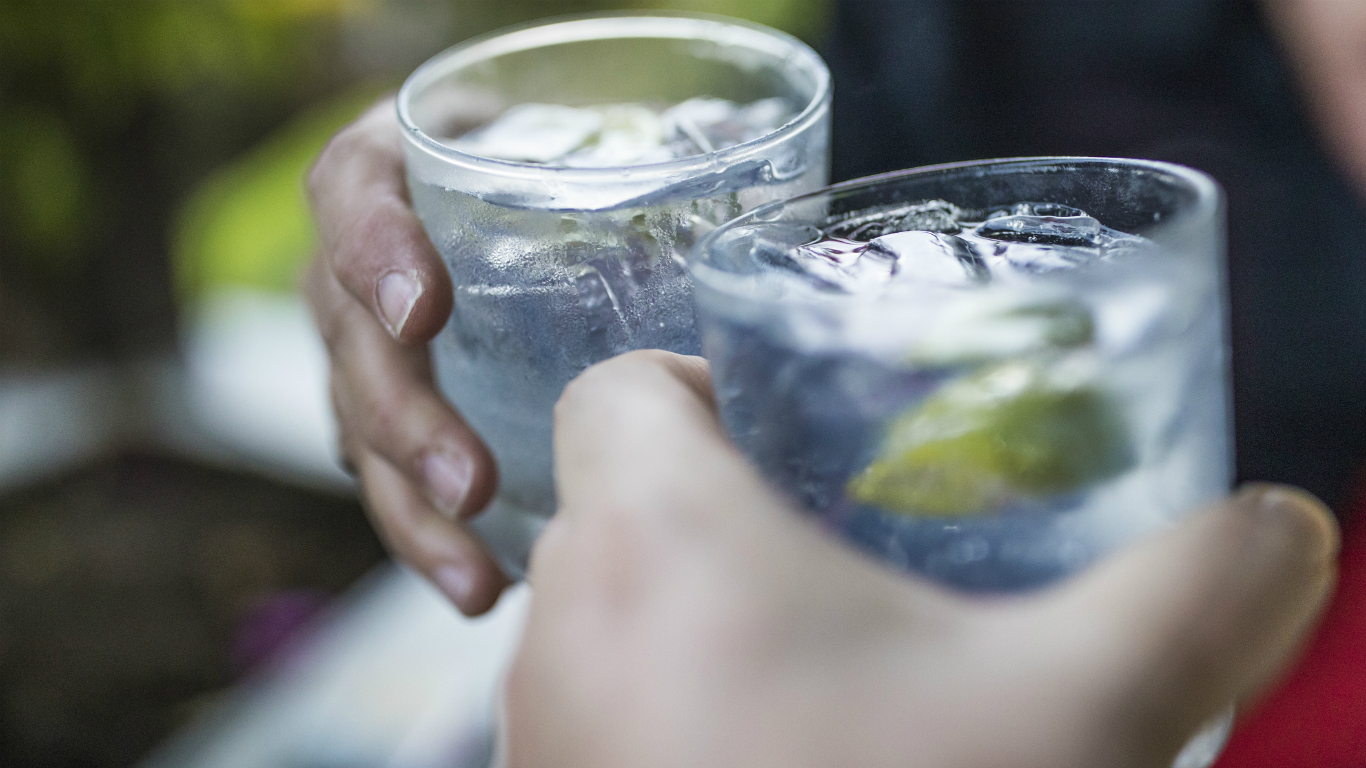Companies and Brands
Want to Fight Climate Change? Drink Gin Made From Peas

Published:
Last Updated:

We all presumably want to do what’s best for the environment, whether it’s recycling, avoiding food waste, driving more fuel-efficient cars, or anything else that we’ve been told will help. But what if we could do our part just by the way we order cocktails?
A new study published in the journal Environmental International outlines a novel way to help reduce carbon dioxide and nitrous oxide emissions (harmful greenhouse gases): drink gin made from pea starch instead of the traditional wheat. This might be an easy way to increase efforts against climate change in the countries doing the least to protect the environment.
The study, called “Just the tonic! Legume biorefining for alcohol has the potential to reduce Europe’s protein deficit and mitigate climate change,” found that pea-starch gin had a smaller environmental footprint than the conventional kind in 12 categories. This was due in part to the fact that growing wheat requires the use of nitrogen fertilizers, while legumes like peas can source nitrogen directly from the atmosphere.
Using byproducts of pea-starch gin production as animal feed would reduce the environmental impact even further by reducing the need to import soybeans — associated with deforestation in Latin America.
It is not possible to rank things you can do to help protect the environment based on impact, but there is a short list of relatively easy ways to shrink your carbon footprint — here are 30 ways you can make your life more environmentally friendly.
Gin was the focus of the study not only because it’s one of the most popular spirits worldwide but also because research for the paper was conducted in association with Scotland’s Arbikie Distillery, which is already experimenting with producing gin from pea starch as well as processing the byproducts to feed farm animals.
Gin-lovers shouldn’t worry about their gin and tonics tasting like the vegetable course, though. David Styles of Bangor University in Wales told Fast Company that the distillery thinks the gin will taste exactly the same as the more familiar kind after it’s double-distilled and flavored with the usual botanicals.
If the pea-starch experiments prove successful, according to the study, “[T]here is great potential to scale this innovation out to other alcoholic beverages such as vodka and beer….”
If legumes were widely adopted for use in alcoholic beverages, global greenhouse gas emissions could be reduced by 439 million metric tons, a significant amount. This could have a particularly dramatic impact in the countries that are increasing CO2 emissions the fastest.
After two decades of reviewing financial products I haven’t seen anything like this. Credit card companies are at war, handing out free rewards and benefits to win the best customers.
A good cash back card can be worth thousands of dollars a year in free money, not to mention other perks like travel, insurance, and access to fancy lounges.
Our top pick today pays up to 5% cash back, a $200 bonus on top, and $0 annual fee. Click here to apply before they stop offering rewards this generous.
Flywheel Publishing has partnered with CardRatings for our coverage of credit card products. Flywheel Publishing and CardRatings may receive a commission from card issuers.
Thank you for reading! Have some feedback for us?
Contact the 24/7 Wall St. editorial team.